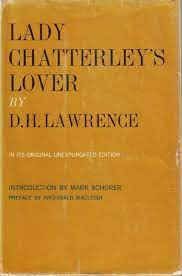Top 10 Banned Books That Caused Uproar Around the World
Literature has always been a powerful tool for challenging societal norms, pushing boundaries, and provoking thought. However, not all works of literature have been met with open arms; some have faced censorship and outright bans due to their controversial content. In this exploration, we'll delve into the top 10 banned books that caused uproar around the world, examining the controversies that led to their prohibition and the lasting impact they've had on literature and society.
1. Ulysses by James Joyce (1922):
James Joyce's Ulysses is a masterpiece of modernist literature, but its explicit language and controversial depiction of sexuality led to its banning in several countries. The novel follows a day in the life of Leopold Bloom in Dublin, but its stream-of-consciousness style and frank discussions of sexuality led to obscenity trials. The ban was eventually lifted in the United States in 1933, marking a significant victory for free expression.
2. Lolita by Vladimir Nabokov (1955):
Nabokov's Lolita is a literary classic that explores the disturbing relationship between a middle-aged literature professor and a twelve-year-old girl. The novel's explicit themes of pedophilia and obsession resulted in its ban in several countries. Despite the controversy, Lolita remains a thought-provoking exploration of morality, forbidden desires, and the power dynamics between adults and minors.
3. Brave New World by Aldous Huxley (1932):
Aldous Huxley's dystopian novel, Brave New World, challenged societal norms and criticized the dangers of technological and social control. Banned in multiple countries for its depiction of promiscuity, drug use, and the dehumanizing effects of a conformist society, the novel remains a cautionary tale about the consequences of sacrificing individuality for societal stability.
4. Lady Chatterley's Lover by D.H. Lawrence (1928):
D.H. Lawrence's exploration of sexual and emotional desires in Lady Chatterley's Lover led to its banning in several countries for its explicit content. The novel's unapologetic portrayal of an extramarital affair and its examination of class differences sparked debates on morality and freedom of expression.
5. The Satanic Verses by Salman Rushdie (1988):
Salman Rushdie's The Satanic Verses ignited a global controversy due to its perceived blasphemy against Islam. The novel's exploration of religious themes and its satirical take on the Prophet Muhammad led to widespread protests, book burnings, and a fatwa issued by Iran's Ayatollah Khomeini, putting Rushdie's life in danger. The book continues to be a symbol of the ongoing battle between freedom of expression and religious sensitivity.
6. American Psycho by Bret Easton Ellis (1991):
Bret Easton Ellis's American Psycho faced criticism for its graphic depictions of violence and its satirical portrayal of the excesses of the 1980s Wall Street culture. The novel was banned in several countries due to its disturbing content, raising questions about the limits of artistic expression and the responsibility of authors in addressing sensitive topics.
7. The Catcher in the Rye by J.D. Salinger (1951):
J.D. Salinger's The Catcher in the Rye has been a subject of controversy for its explicit language, sexual content, and rebellious protagonist. Banned in various school districts for its perceived promotion of rebellion and its exploration of teenage angst, the novel continues to spark discussions about the appropriateness of certain content in educational settings.
8. The Tropic of Cancer by Henry Miller (1934):
Henry Miller's semi-autobiographical novel, The Tropic of Cancer, faced censorship for its explicit language and explicit sexual content. Banned in the United States for obscenity, the novel challenged societal norms and paved the way for discussions about the boundaries of free expression in literature.
9. Animal Farm by George Orwell (1945):
George Orwell's Animal Farm, a satirical allegory of the Russian Revolution, faced bans in several countries due to its political implications. The novel's critique of totalitarianism and its portrayal of the corruption of power led to its censorship during the Cold War, highlighting the power of literature to challenge political ideologies.
10. One Hundred Years of Solitude by Gabriel Garcia Marquez (1967):
Gabriel Garcia Marquez's magical realist masterpiece, One Hundred Years of Solitude, faced censorship in some countries due to its depictions of sex and violence. The novel, which explores the history of the Buendía family in the fictional town of Macondo, challenges conventional narrative structures and cultural norms, making it a target for censorship in certain conservative societies.
These ten banned books have left an indelible mark on the literary landscape, challenging societal norms, sparking debates about freedom of expression, and pushing the boundaries of what is deemed acceptable in literature. While some of these works faced immediate censorship, others have withstood the test of time to become celebrated classics. The controversies surrounding these books serve as a testament to the enduring power of literature to provoke thought, challenge authority, and shape cultural conversations. As we continue to grapple with questions of censorship and freedom of expression, these banned books remind us of the importance of fostering an open and diverse literary landscape.













Comments
Post a Comment
leave a comment, like and share...